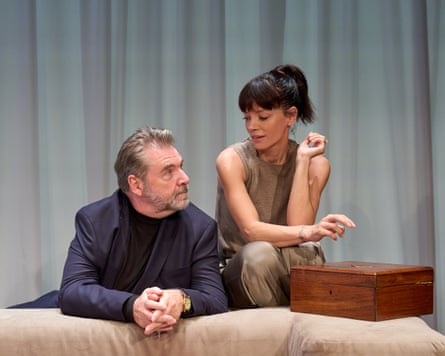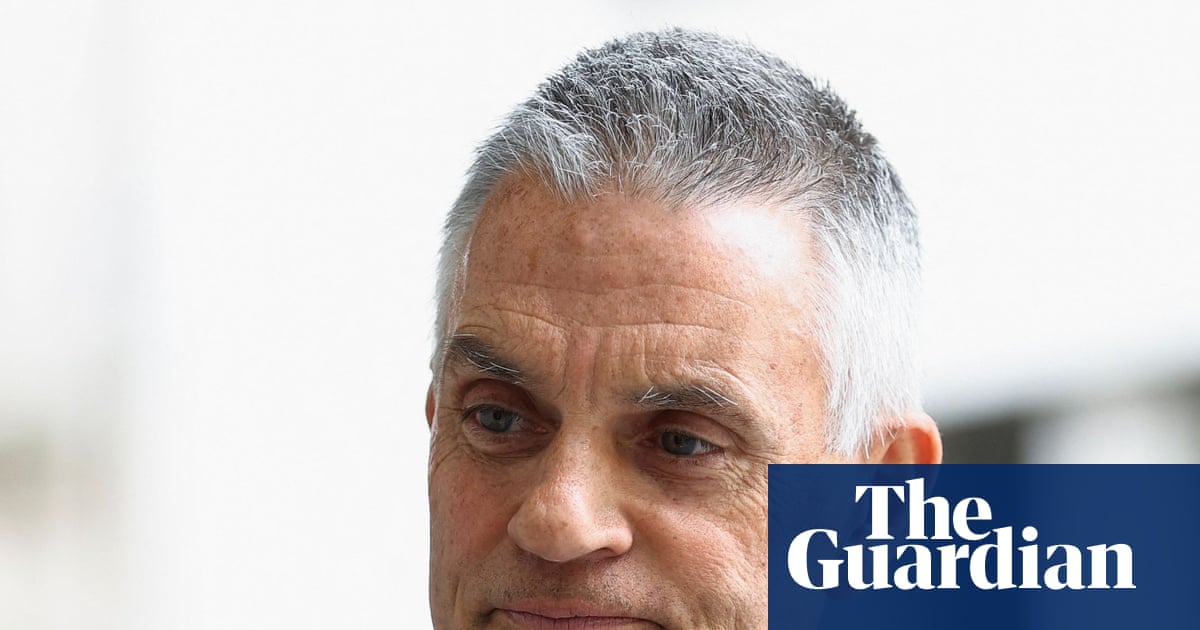It is not through any shortcomings of the cast that Matthew Dunster’s modern-dress reimagining of Henrik Ibsen’s Hedda Gabler is so peculiar. Lily Allen is convincingly brittle as the bored newlywed who has just returned from honeymoon with her plodding academic husband, George (Ciarán Owens). His loyal aunt, Julia, is exquisitely played by Imogen Stubbs. Julia Chan shines in the part of Hedda’s old school friend, Taya, who has left her controlling husband and is in the throes of a love affair with the alcoholic academic Jasper (Tom Austen, all earnestness here). He is Hedda’s former lover who sparks her destructive jealousy, which leads to the play’s explosive ending.
The setting is a cool, Scandi-style living room with long billowing curtains, beautifully designed by Anna Fleischle. But as well-acted and stylish as this production is, why does it not convince in its story?
Perhaps because it seems neither of our time nor of Ibsen’s. Dunster’s adaptation sticks to original events on the whole and this fidelity jars against the modern context.
The playwright’s Hedda is a female Shakespearean antihero, of sorts, an arch manipulator who seeks freedom from the confinement of her marriage and position in high society. Allen plays the daughter of a music label mogul brought low rather than a woman of aristocratic lineage. But when stripped of the specific confines of her time, she is less coherent as a character. Her refusal to work, for instance, is harder to understand, so Hedda seems like a spoilt princess rather than a woman trapped by, but also resisting, patriarchy. George does not transpose into this world convincingly either: he is not adoring nor pliant and you wonder what he is doing with a wife as conspicuously unloving as Hedda.

There is psychological realism – characters speak as they feel – but the language sounds odd and artificial in this setting: Hedda implores Jasper to make his suicide “beautiful”, as in Ibsen’s script, and speaks of her “disgust” when she is told the bullet that killed him was shot into his bowels. Again, it jars.
Dunster, also directing, creates good intensity in some scenes but the pace of events gathers a speed that brings out the melodrama of Ibsen’s plot. Allen shows you her character’s power and rage more than her vulnerability but you do not feel her sense of narrowing choices, maybe due to the rush of events.
It grows fevered, not keeping a pace with the psychology of its characters, and by the end, events come thick and fast, from Jasper’s drinking binge to trouble with the police, a visit to another woman’s home and his misplaced book manuscript (here on a laptop). Characters’ emotions swing in one direction and then another.
The play’s tragedy rests on Hedda’s fear of scandal, after the powerful figure of Brack (Brendan Coyle, an MP rather than a judge and compellingly creepy) blackmails her. It does not quite chime – maybe scandal does not carry the same threat for a woman like Hedda today or perhaps this plot point is just not given enough space to grow in its threat.
There is tension in the earlier acts and some taut moments, but it ends up seeming like a domestic thriller rather than a grand tragedy.

 2 months ago
63
2 months ago
63

















































